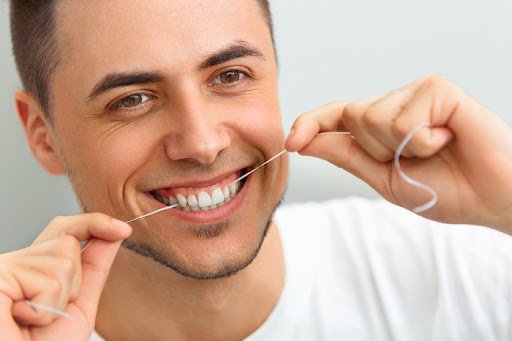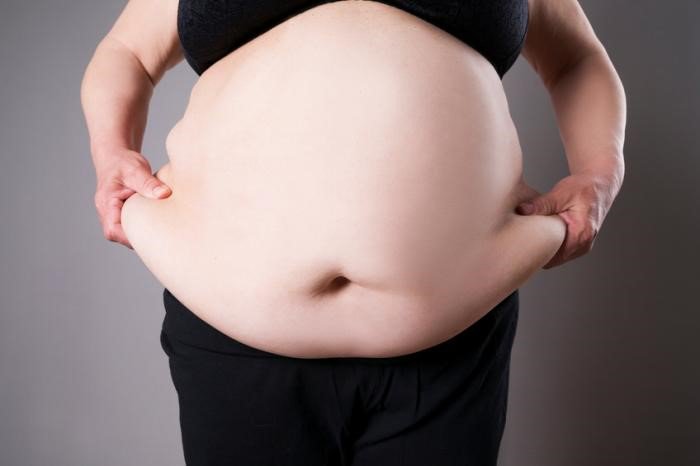
1. The surprising link between weight and oral health
Another published study found that overweight and obese people also have worse oral health than those of normal weight. In particular, obese people are nearly 6 times more likely to develop severe gum disease.
1 observation in adults with 70% overweight or obesity found that those with a body mass index (BMI) of 23 or more had more severe periodontal disease and periodontitis than those with only low BMI. In fact, white blood cell counts and C-reactive protein levels (evidence of inflammation in the blood) were also higher in these subjects.
The above results have been explained: Obesity is often associated with unhealthy habits. Arguably, some obese people don’t have the same good oral and body care habits as those of a fit body. In addition, periodontal diseases are infectious in nature, mediated by immunity, obese people have a weakened immune system, so they are more susceptible to bacterial infections that cause gum disease and tooth decay. The results of these studies serve as alarm bells about another potential risk of obesity, providing an incentive for people to try to lose weight.

2. Why can poor oral health lead to weight gain and obesity?
Because of the above reasons, when people have bad oral health, people tend to use more processed foods. Processed foods are loaded with unhealthy carbs – especially sugar and fat. These are easy to eat but they can be harmful to the body and teeth. The amount of added sugar will contribute to worse tooth decay. At the same time with such a diet, it is very easy to gain weight.
2.2 Skipping exercise Not only eating unhealthy foods, but also having bad oral health also makes patients more inclined to give up exercise.
2.3 Inflammation contributes to weight gain Inflammatory response is this complex interplay between obesity, diabetes, and oral health. Inflammatory proteins are important signals in the body’s immune response, so with a chronic infection, the body releases more inflammatory compounds. These inflammatory proteins interfere with several important hormones — such as leptin — that help the body regulate energy use and lose weight. What’s more, prolonged inflammation can also contribute to chronic fatigue, making it difficult for people to start or maintain good exercise habits.
Inflammation today is linked to future weight gain. At the same time, fat cells also release inflammatory proteins. In fact, not only does fat make the body easier to gain weight, but it can also increase the immune response to oral bacteria, making oral health worse.
3. Does losing weight help improve oral health?
If you are losing weight following a strict diet that includes meal replacement juices, cutting carbs, eating only high-fiber foods, or cutting out key nutrients, it could affect your diet. to oral health. The weakened tooth and gum system will be easily attacked by resident bacteria in the oral cavity and cause damage.
If you are trying to lose weight, people may think that chewing gum is a good way to stop themselves from eating. However, for some people, this can make the body crave sugar even more, especially because of the use of fake sugar. So, if you’re worried about whether chewing gum can cause weight gain, the answer really lies with the person. On the other hand, eating a lot of sweets will increase the risk of tooth decay.
Thus, the interaction between dental care and weight control or obesity are just some of the many consequences that poor oral health has on overall health.

4. Measures to lose weight are good for oral health
Food choices that ensure adequate energy, do not cause weight gain but are also good for the health of teeth include:
2.1 Fruits and vegetables Fruits and vegetables should make up nearly half of the plate in the meal yours. These are all foods that contain a lot of water and fiber, which not only help balance the amount of sugar consumed in the body, but also effectively clean the teeth. In particular, these foods also help stimulate saliva production, wash harmful acids and food particles out of teeth and help neutralize acids, protecting enamel from tooth decay.
2.2 Grains For good oral health and still effective weight loss, half of the cereals eaten should be whole grains, breads or low-sugar cereals, such as oatmeal, whole-wheat bread bran and brown rice.
2.3 Protein Choose lean proteins, such as lean beef, skinless poultry, and fish. Alternate other protein choices can include eggs, peas, and other legumes. These phosphorus-rich foods will help keep your mouth healthy and at the same time feel fuller for longer.








